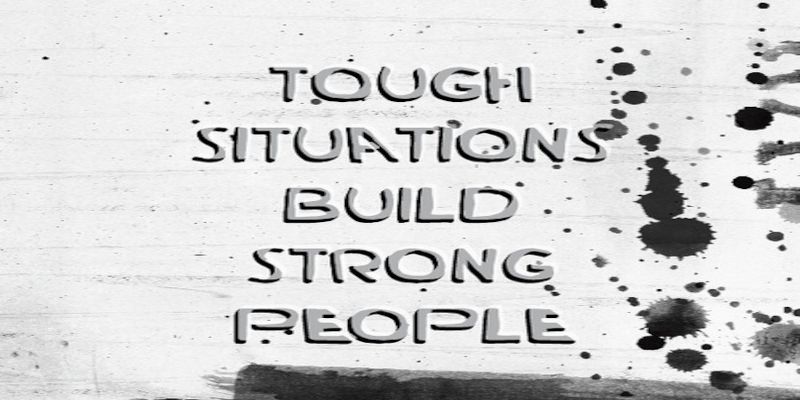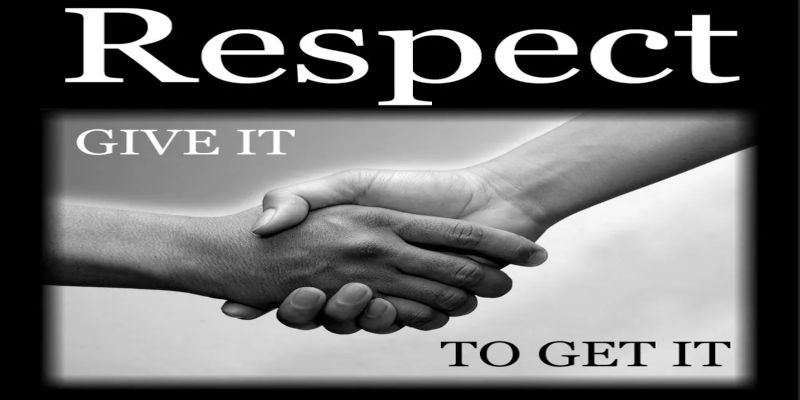Table of Contents
ToggleLeadership is often associated with power.
And while it’s true that power naturally comes along with taking the lead, I argue that effective leadership should come as a result and consequence of competence rather than a simple desire for power.
Despite leading obviously including being in a position of power, it’s so much more than just that. That would be far too simple to describe such a critical position.
You’ll receive an incredible amount of responsibilities. But if you think you’re up to the task, then this is how to become a successful leader.
Traits and skills of a successful leader

Courageous
Excellent leadership can only be attained if one is courageous enough to attempt such an amazing, and difficult feat.
Failure and unknown/unfamiliar problems will come your way. And a large part of effective leadership is figuring out and solving new, complex concerns.You need to be brave enough to face those difficulties head-on to grow and eliminate those issues in the process.
Respectful
Respect is the foundation of healthy, long-lasting relationships.
No matter what position you occupy in the social hierarchy, respect is always necessary to interact on good terms with each other. Both for yourself and others.
Mentally and physically strong
 Being (and remaining) mentally and physically strong are important traits of a successful leader.
Being (and remaining) mentally and physically strong are important traits of a successful leader.
You should aim to inspire other people. You have an exemplary function, which means you should act like you want other people to.In my opinion, we should all be both mentally strong and physically fit.
Taking care of your physical appearance is every bit as significant as being competent and psychologically powerful.
Responsible
One of the main skills of a successful leader is being responsible.
While an employee has the responsibility of performing their job adequately, a manager has the responsibility of executing their job decently, but also to make sure that the team is performing well.
While it may be possible for a worker to slack off a bit from time to time, a superior has an exemplary function and standards that they should try to uphold.
Competent

A supervisor should be competent since those around them will turn to them for guidance. Especially in times of need.
Thus, ineffective and incompetent leadership is a recipe for disaster because they’re calling the shots, and directly influencing the behavior of the employees.
That’s why we want someone that recognizes what needs to be done, while also knowing how to get it done.
Intelligent
The right person in charge is intelligent enough to know their strengths, but even more importantly, their weaknesses.
Furthermore, to improve as a human being, and as a supervisor, a considerable amount of self-analyzing and introspection is necessary before we can walk the path of self-improvement.
Wisdom

Wisdom is not the same thing as intelligence. Wisdom is how you choose to apply all your knowledge and intelligence.
An effective executive knows when and how to compromise, even though they might think differently. They know how to interact with their team most efficiently to get the best results.
Good communication skills
Good communication can, and has saved multiple relationships. Be it professional, or romantic ones.
Open communication can end problems or worries as soon as they start to arise. And that’s much preferable rather than allowing the concerns to grow out of control.
Ultimately, you want to create an environment where everyone feels comfortable around each other and where every individual can speak their mind without having to worry about the possible consequences or repercussions.
Honesty

Nobody likes being lied to. And for good reason.
If I know you lied to me in the past, then how can I trust you again in the present and future? How can I separate the truth from the lies in the time to come when you tell me something?
The truth may hurt sometimes. But in the end, it will set you free. But you have to push through the uncomfortable part before it can do so.
Integrity
Integrity means being honest with yourself.
For instance, it can entail admitting to yourself what your perks are, but even more importantly, what your failings are, and what you need to improve on.
Unafraid of failure

Failure is part of life and is even necessary to facilitate growth.
And since someone with a managerial position has so many duties, the chance of failure along the way is even higher.
But the willingness to fail, and to get back up is your biggest ally in this case.
Humbleness
The best executives are humble. Modest enough to realize what they’re good at, but particularly so regarding knowing what their imperfections are.
No matter how smart and intelligent you think you are, life is too complex to understand everything in just one lifetime.
Humbleness is best defined as knowing how much one doesn’t know. Despite potentially knowing a lot.
Takes advise

Everyone has their impotencies. Every part of a team has their field of expertise.
Thus, it’s only logical that the person in charge should listen to each individual who has the skills to come to a well-thought-out and balanced decision.
Knows their strengths and weaknesses
Already briefly touched upon in previous points.
Great executives know their strengths and failings.
And it’s exactly in those weak areas where the person in charge needs advice. That can’t be accomplished if we lack the humbleness to listen to other people’s skillfulness.
It’s no shame to be vulnerable in some spheres, seeing as nobody is perfect, and we all have our blind spots that we need to get pointed out by those around us who truthfully want the best for us.
Are successful leaders born or molded?

An age-old question that regularly pops up is whether successful leaders are born, or molded.
How much of our prosperity can be attributed to our genes, and how much of our success is nurture, or, in other words, hard work and our environment?
As is the case with many things in life, success is the result of the complex interplay between our genes (nature), nurture, and our environment.
This means that it is possible to mold, and develop yourself into a competent leader through effort, and by surrounding yourself with the right people. Although, the importance of genes should not be understated.
Some people will naturally possess more leadership traits than others, simply due to being blessed by Mother Nature.
However, that certainly shouldn’t prevent you from working on yourself and trying to create a competent and supporting environment that allows you to grow while feeling adequately supported in the process.
Those who don’t want the best for you, and don’t support you as a result, are best put aside and left alone.
Qualities of a good manager and leader

Focus on competence rather than seeking power
Focusing on competence rather than simply seeking power is one of the key characteristics of successful leaders.
Ideally, getting into a position of power, which is the definition of what a supervisor is, should be the consequence of being competent rather than solely seeking power.
Ultimately, leading people in an honest, long-lasting, and effective manner is as much the result of behaving in an honest, integer manner than it is solely being competent.
Simply being smart and capable doesn’t cut it. We can’t ignore the human side and people skills that go along with effective leadership, either.
Summarized, an improvement mindset is key to improving your competency and becoming a person worthy of directing others.
Try to master yourself first before trying to lead others

Trying to master yourself before trying to lead others is another of the most important qualities of a good executive.
You shouldn’t even attempt to lead others if you can’t even manage to master yourself.
It would be like the blind leading the blind, or the deaf leading the deaf. It simply doesn’t make sense to do something you’re not skilled enough at, because that’s a recipe for disaster.
Be your own harshest critic
One of the best examples of effective leadership is being your own harshest critic. With a managerial position comes immense responsibility. That is if you want to be a respectable and true leader.
To manage those critiques, and to spur other people on to become the best possible individuals they can be, you must at least be as harsh for yourself as you are to your people.
Hold yourself accountable, and treat yourself like someone responsible for your own words and deeds.
Treat people with respect

One of the qualities of a good manager is that they treat everyone they meet with respect, regardless of personal feelings.
No matter if you’re in a leadership position or an employee at a company, you should always treat others with courtesy.
In the end, we are all human beings with our advantages and detriments. And good relationships are built upon reciprocal respect.
Just because you rank “higher” in the social hierarchy doesn’t make you more important, either. Employees are every bit as vital to attainment as their boss. I would argue even more so.
Lead by example
People not only learn from their own mistakes and failures, but they also acquire more knowledge from watching and analyzing those around them.
Furthermore, how can you expect other people to behave appropriately if you as the supervisor don’t even hold yourself accountable for your actions and words?
Always lead by example. And be the change in the world that you’d like to see.
Learn from failure and experience

Being human inherently means being imperfect.
We learn a great deal more from failure and experience than we do from succeeding the first time. That’s because failing is uncomfortable, and we’re incentivized to learn to prevent ourselves from making the same fault(s) twice.
Keep an open mind, stay humble and hungry, and learn from your errors and experiences along the way.
Act with honesty and integrity
A leader should not only be competent but every bit as much a morally decent person to look up to as well.
We all like to be treated with respect, which includes virtues such as honesty and integrity.
Even if other people aren’t always truthful and integer, that doesn’t mean that you shouldn’t be.
As an executive, you must be better. As good as humanly possible. Again, lead by example and people will follow eventually.
Act gracefully and with humility

No matter what position you occupy in the social hierarchy, one is not better than the other by default.
Being a higher-up doesn’t mean you are perfect, or that you don’t make mistakes.
Know what your perks and imperfections are, and admit to yourself AND others that you don’t know everything there’s to understand.
A confident, humble person should be able to admit to themselves (integrity) and others (honesty) when they’re in the wrong. People are likely to respect your righteousness and your courage to tell the truth.
What are the 5 key qualities of a good leader?

The 5 key qualities of a good leader are:
- Good decision-maker
- Leading by example
- Integrity
- Good communicator
- Courageous
Nevertheless, it should be noted that many other essential attributes make leaders successful such as being capable of motivating others, being empathic, grateful, and calling attention to success, to name a few.
Examples of bad leaders

Lack of transparency
I believe that people should always be honest and tell the truth, but the reality is typically very different.
Yet, when the supervisor isn’t transparent with the workers about the goals of the company, and how they’re functioning in that institution, then they risk feeling misunderstood and disregarded.
That’s why being transparent is so vital since it helps to build trust and an honest, open communication style between coworkers.
A general lack of direction and independence
People need a direction before they can utilize their independence to work towards that goal. Both about what’s expected at the individual level, but also what values and goals the company has in mind.
Avoiding micromanaging is great, but that means there needs to be a clear path for the team to remain goal-oriented, and before they’re capable of working independently.
Disregarding suggestions and thoughts from the employees

Since everyone has their strengths and weaknesses in a team of individuals, it only makes sense to utilize each person’s advantages.
That’s why disregarding the ideas and proposals of employees is such a bad decision on the boss’ behalf. You should employ everyone’s creativity and personal perks to achieve the best results.
Your coworkers will be content as well since they get to apply their ideas and feel respected in the process.
Being unavailable
Being unavailable can refer to physical and emotional inaccessibility.
It’s possible that the leader feels too busy with other tasks instead of being there for the rest of the team. It’s also a possibility that they’re simply bad leaders who don’t care about the wellbeing of others and remain emotionally distant as a result of being aloof.
Being busy is not an excuse to disregard the health and psychological well-being of the rest of the team since you’re in a position of power and responsibility.
Thus, it’s up to you to make time for the needs and desires of those around you, so they feel, and remain satisfied employees who perform their job well.
Inconsistencies that cause a lack of authority
Inconsistencies regularly cause a lack of authority. And that’s particularly true the larger a team gets since there are more chances to be contradictory.
It can show a lack of ability but also decrease the trust that employees have in their management and overall company. It can even show favoritism, which isn’t something that should have any room in the workplace since everyone should remain objective and impartial.
That’s why discipline and consistency are paramount to keep things running smoothly.
Final take

Being in a leadership position means you’ll have access to power. As a result, you’ll most likely have a lot of responsibilities on your plate as well.
These obligations are not only limited to yourself or your company but first and foremost to the people working for you. This position of power brings with it the responsibility to protect the employees’ safety and personal well-being.
In the end, leaders are partly born, and partially molded. That’s why the society that separates its scholars from its warriors will have its thinking done by cowards and its fighting by fools. You need to be a student of the game, all the while being brave and willing to engage in conflict.
Some traits might come to us by nature, while other attributes will need to be nurtured and developed growing up.











